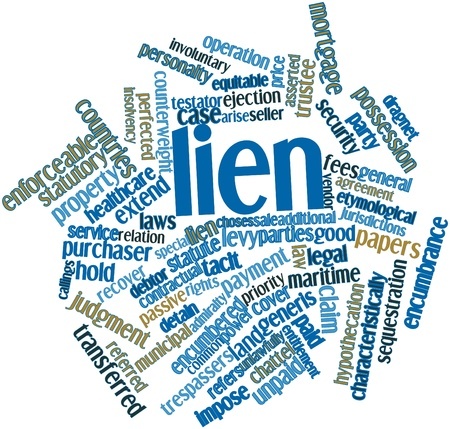
A lien is a claim against property that is filed and recorded by a creditor. Liens that are not satisfied may encumber an owner’s unrestricted use of his or her property in a variety of ways, including the transfer or sale of the property or the ability to refinance through a bank. A “cloud on the title” refers to any valid claim that affects the owner’s lawful title to a specific piece of property. The ability to acquire a lien on real property is not limited to creditors who have unsatisfied debts relating to the property, such as mechanics liens. As described below, a variety of creditors can impose liens on real property for defaults in payment.
Banks. Mortgages are voluntary liens a homeowner consents to when obtaining financing from a bank. Banks may also supply additional loans in the form of home equity lines of credit and second mortgages. Upon default on these supplemental loans, a bank has the power to enforce the lien and foreclose on the property.
Municipalities. A municipality may foreclose on real property for delinquent payment of property taxes. In many cases, an owner who has paid off his mortgage may neglect to pay property taxes since the bank may have been paying those taxes for the owner as a requirement of the loan. The municipality would provide notifications and penalties prior to initiating foreclosure proceedings.
Internal Revenue Service. The IRS may put a lien on a property for failure to pay almost any kind of tax including: federal, state, city, county, income, payroll or sales tax. The lien may include the amount owed in addition to accrued interest and penalties.
Contractors. A mechanics lien can be imposed by various contractors, such as plumbers, gardeners, electricians etc. Even if the contractor never pursues payment in a court proceeding, the placement of a valid lien remains attached to the property once it is properly recorded.
Court awarded judgment recipients. A party who received a valid judgment in a court of law pertaining to any matter may place a lien on real property owned by the judgment debtor.
Credit card companies. If a credit card company secures a court ordered judgment, it can impose a lien on real property.
Disputes relating to real property require the expertise of a lawyer with experience in both litigation and alternative resolution methods. Whether you are a property owner or creditor, Shane Coons can guide you in the process. Contact him at 949-333-0900 or visit www.ShaneCoonsLaw.com to learn more about his practice and services.
